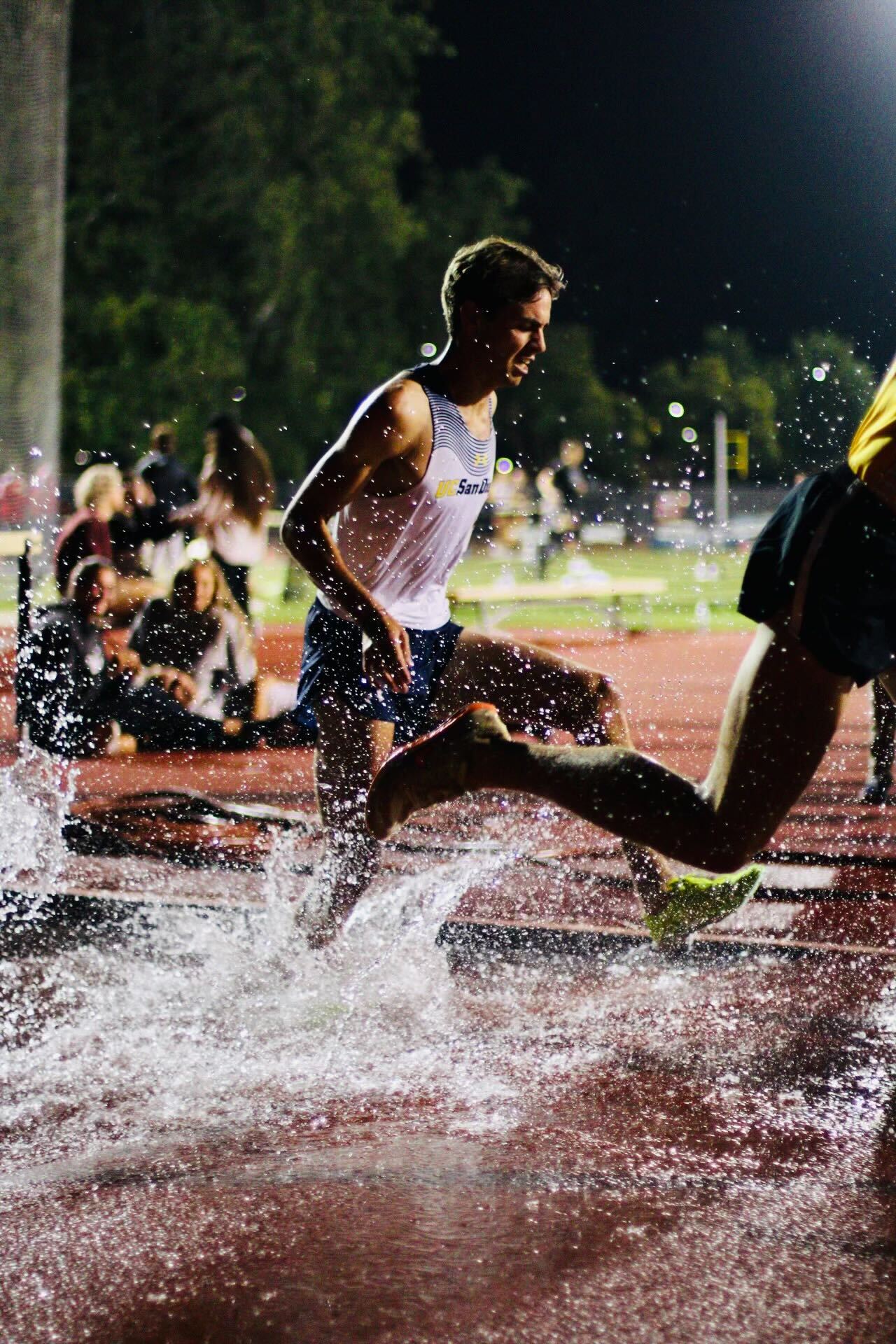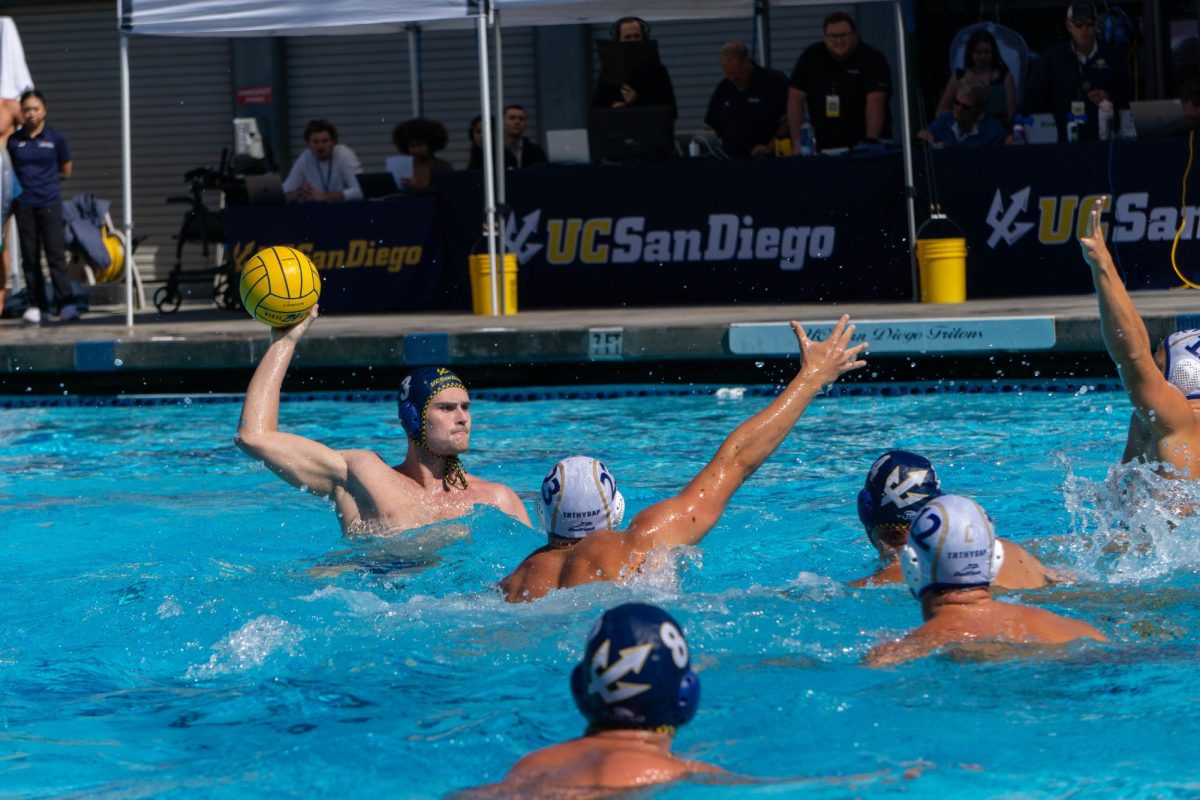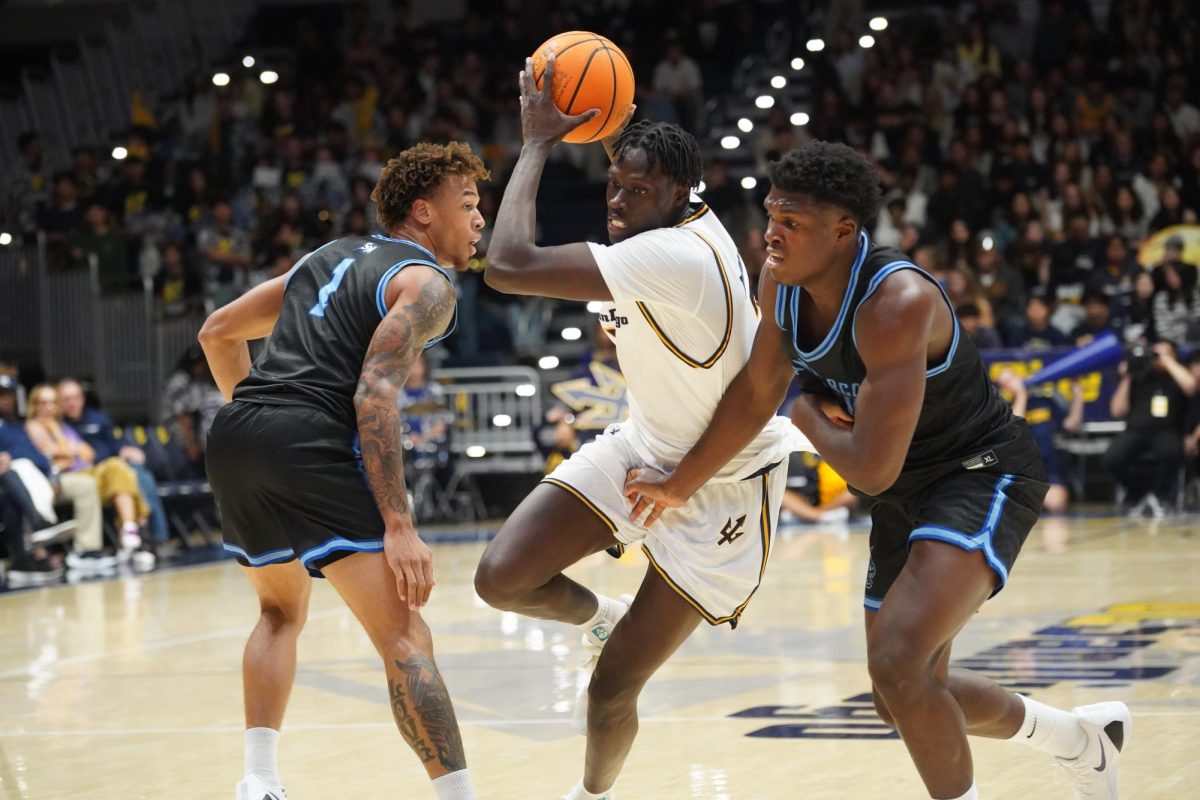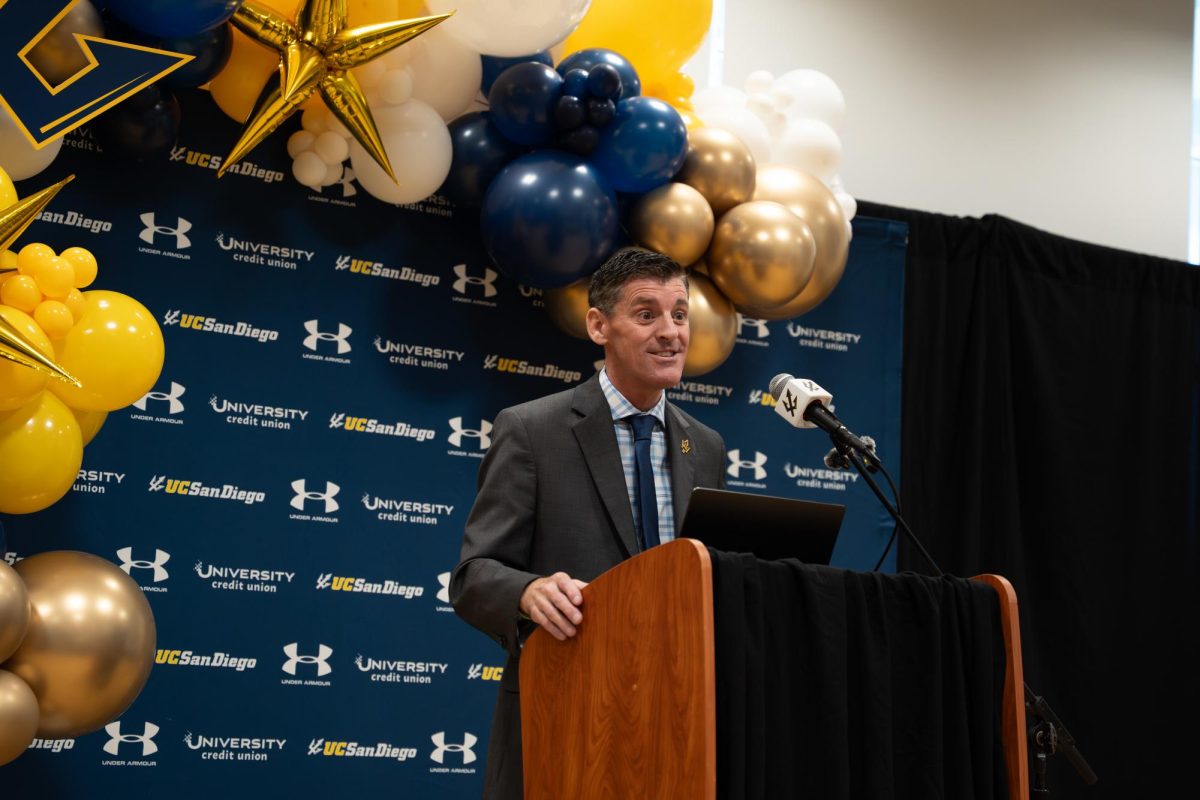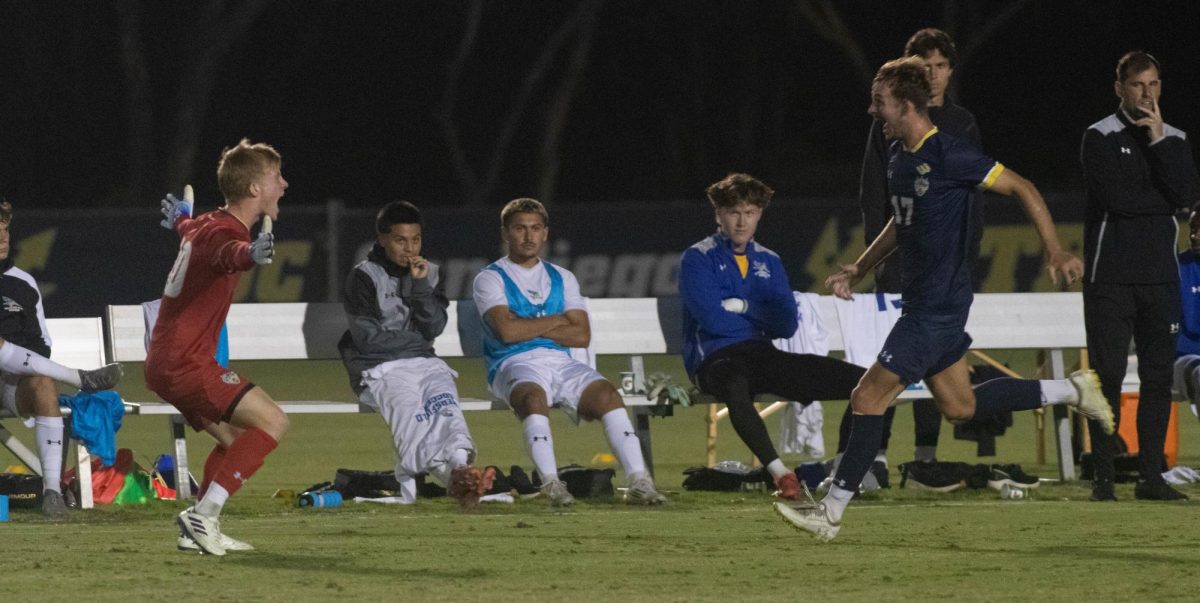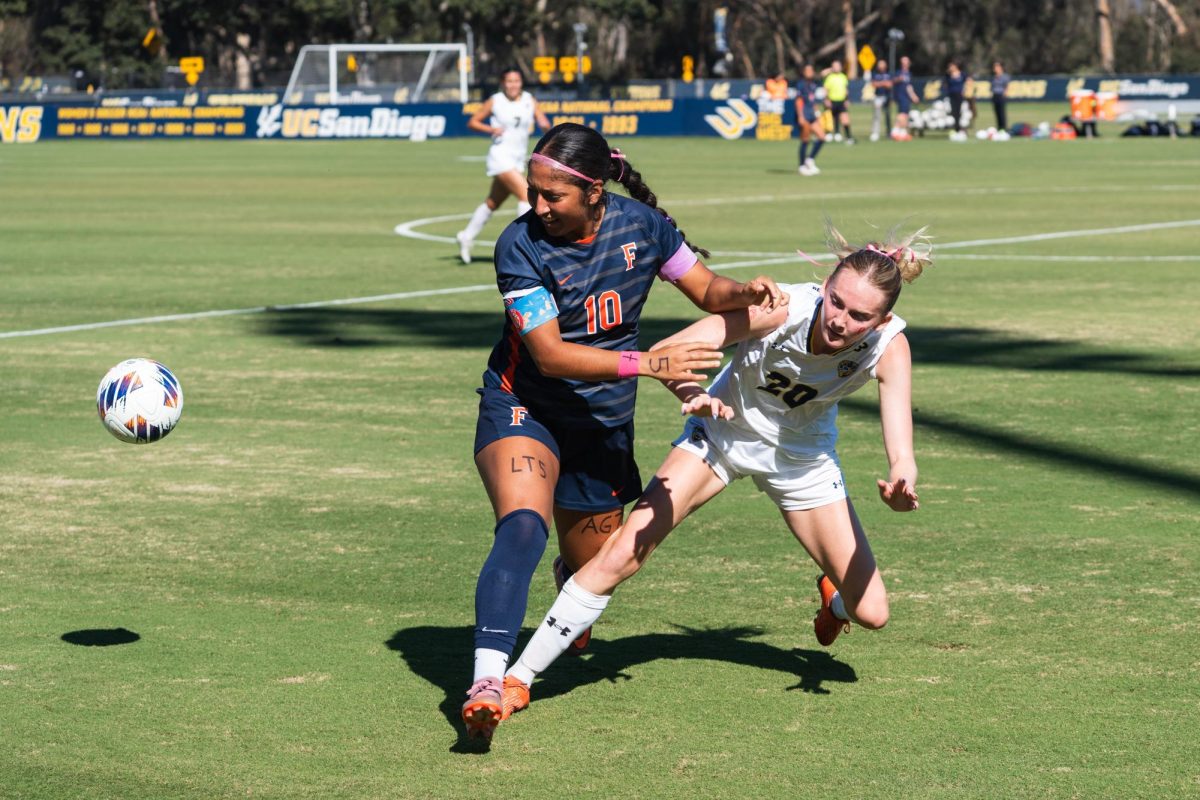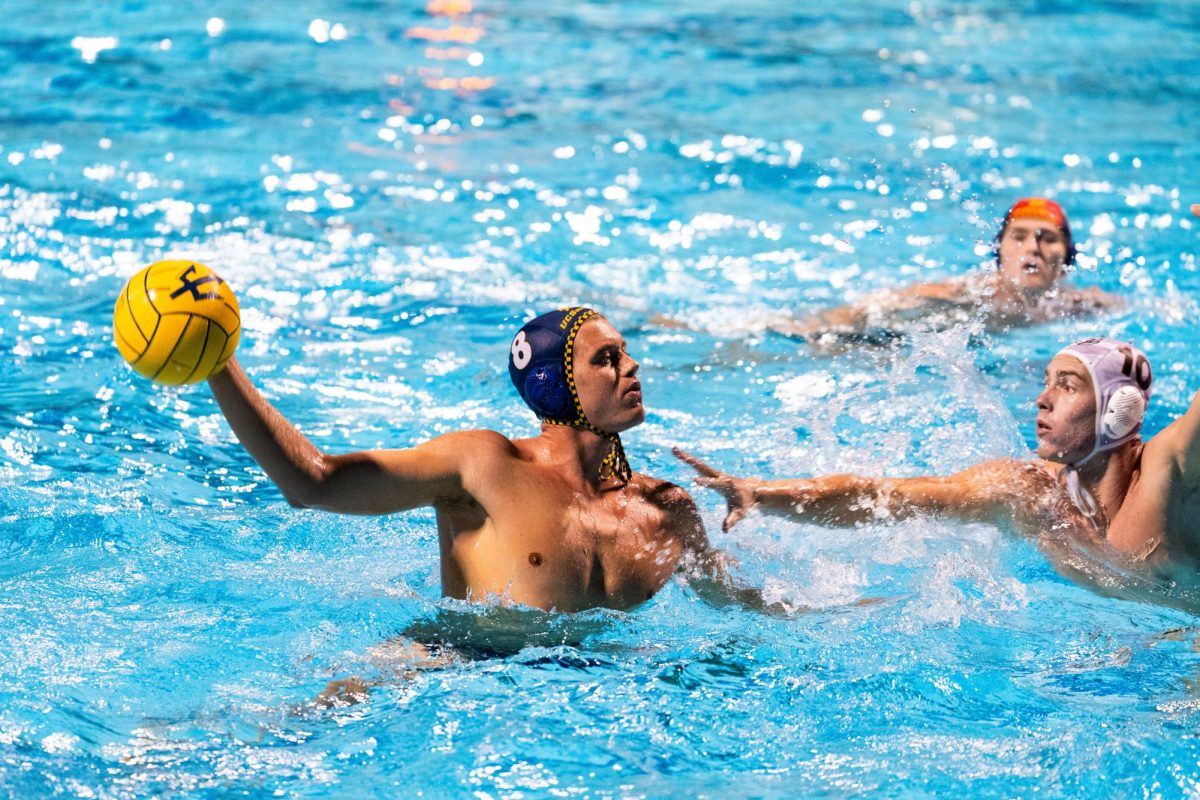In the fifth century, the Greek philosopher Zeno of Elea proposed the following paradox: “In a race, the quickest runner can never overtake the slowest, since the pursuer must first reach the point whence the pursued started, so that the slower must always hold a lead.”
A solution was ultimately found in the 17th century with the invention of calculus and limit properties. Yet the first part of Zeno’s paradox — that “the quickest runner can never overtake the slowest” — was recently disproven by a remarkable athlete from UC San Diego who happens to share the philosopher’s name.
During an indoor collegiate track race on Feb. 3, 2024, the quickest runner did overtake his slowest competitors. The feat was achieved a little over seven minutes into the men’s 3000 meter run at the Riverfront Invite in Spokane, Washington, held in a dome oddly called the Podium.
The race’s leader flew down the back stretch once again, this time emerging upon two slower runners. As he rounded the turn to his last lap, the leader lapped the two runners, then powered ahead with a comfortable advantage. The closest actual threats to the lead were posed by a pair of orange-clad Idaho State teammates giving chase from several paces behind, but they, too, were unable to catch the Triton surging ahead in bright, white spikes. The clock showed 8:21:75 as the winner crossed the finish line alone, another notch on the belt of one of the fastest runners in the Big West conference, and a personal best for the runner at the zenith of an outstanding era of Triton distance running.
There is a legend in which the Catholic patron saint of children learning to walk, Zeno of Verona, was briefly replaced by a demon when he was a child. UC San Diego senior Zeno Castiglioni recalled no such experiences during our conversation outside Price Center on Friday morning, instead regaling me with the travails and triumphs that have defined his path from Davis distance running stalwart to one of the most decorated distance runners in UCSD history.
Castiglioni, 21, has the hallmarks of an archetypal distance runner: lean build, thoughtful approach, and a grounded dedication to a craft, in which, to some, success is inextricably linked to innate ease and mere natural talent. In reality, nothing could be further from the truth; the Muir senior recalled a time where there were no guarantees that his record-breaking collegiate running career would ever develop into what it has become.
“I got into the [3000 meter steeplechase] because I could not run a good 5000 meters,” he said. “Freshman and sophomore year, I ran the 5000 meters, that was my primary, and I really hated it. Just didn’t work for me. Mentally, physically, I always just felt like it never worked. And so junior year, I was just like, ‘I’m going to try the steeplechase.’ Liked it a lot better.”
Castiglioni’s switch resulting in tangible success is a key part of his lasting legacy, and the record books are an effective place to begin. This year, the senior ran 8:24.19 in the 3000 meters to break the previously standing school record of nearly 30 years. He also conquered the 5000 meters — the event he once hated — by besting a 2001 UCSD record, running 14:16.40. He also took nine seconds off the 3000 meter steeplechase record last set in 2011, becoming the first Triton ever to complete his favorite event in under nine minutes.
There are, too, the records he sits just shy of. He clocks in just six tenths of a second behind the 1500 meter record last set in 2022, and eight seconds behind the 10,000 meter record set last year. These near-misses could have caused perturbation to some, but not Castiglioni, deeply unfazed by the historical air around his records.
“I think I’m less excited about it than people think,” Castiglioni admitted. “At the end of the day, I’m happy that I PR’ed for myself. Seeing those times from 20 years ago … there’s a bit of inflation with times … the shoe tech is different, I think we know more about training, nutrition, all that stuff; so it makes me respect those guys even more.”
If humility is a facet of Castiglioni’s approach, community has long been a staple of his drive to success. The runner’s ethos originated in his formative experiences under the “sweltering heat of Davis” that accustomed the young runner to uncomfortable conditions. From the camaraderie of “Big Smokey,” the site of Castiglioni’s favorite run, to falling out with an event to one day setting its new record, it appears that, more than the accolades, it is the pursuit of running’s deeper meanings that guide his way.
Castiglioni’s running career benefits from an early nurturing: he comes from a family of runners. When he was in high school, it was his older sister who drove the freshman to beat her time — ultimately breaking five minutes in the 1600 meters along the way to a collegiate running career at Portland.
“Still better than me, in all respects,” he declared.
Chasing his sister’s time reflects Castiglioni’s “natural progression,” from being motivated by his sister’s times to eventually toppling long standing collegiate records.
“I think it really started for me like sophomore year of high school, like once my sister started running in college and I came from a program where a lot of people ran in college, and I was like, okay, I’m gonna run in college, but I didn’t have any goals for college,” he said. “I wanted to break 14 in the 5000 meters which didn’t happen but that was really it. I just wanted to get to college first, wasn’t really thinking about the times…”
Castiglioni discussed his vision of the distance program’s future through his experiences of viewing the runners’ production increase the program’s overall standards early in his Triton career.
“One thing my coach told me my freshman and sophomore year, when like a lot of the guys on the team were trying to break 15 minutes in the 5000 meters, and then the next year once guys did it, like, we’d come back and the new wave of guys isn’t even thinking about 15 minutes, they’re thinking about 14:30,” he said. “So, I think that part’s exciting to where like, maybe it sets the standard a little higher for what kids expect is possible or what they should be doing on our team, and I think that’ll make, you know, even just the next four years way faster.”
Castiglioni said that he is unlikely to become a coach — maybe “some high school stuff,” or if his kids run.
“I ask a lot of myself when it comes to training, and I don’t think I’d be able to coach kids that I don’t think would do the same, so I think it would be hard for me to coach,” he added.
Speaking of his records, Castiglioni is frank.
“I don’t expect my records to stay for 20 years. I’d give it two to three years at best, especially knowing the guys that are there now, and maybe, optimism for the future,” he said. “But, the faster they go down, the happier I’ll be. I do not want them to stay for 20 years.”
“The faster they go down, the happier I’ll be.” This from a guy who never won a race before coming to college. Not once. Ever. What do you make of that?
There is an image of Zeno Castiglioni looking on years from now, his records long broken by waves of future Tritons already circling around his standards, and he’s beaming. For this special class of elite runners, watching their records fall merely imbues in them the calming realization that their achievements fuel the perpetual pushing of the bounds of human possibility. For the rest of us observing in awe, you could just call it a paradox.


